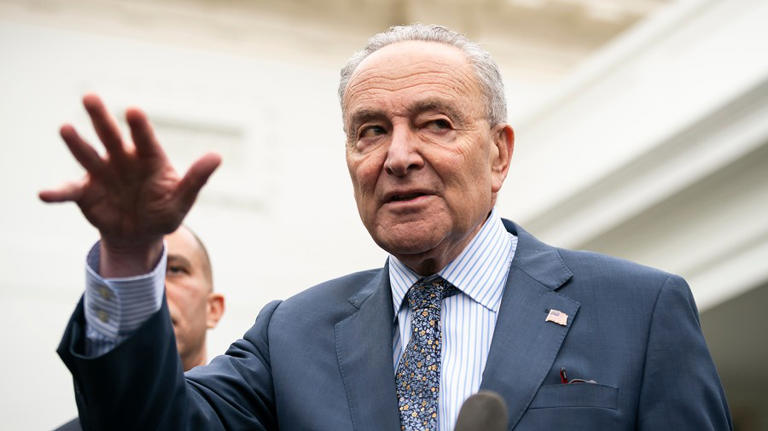The Senate moved forward with a vote on Friday to advance a $460 billion package comprising six spending bills aimed at funding various federal departments, avoiding a partial government shutdown before the midnight deadline. The 63-35 vote to advance the legislation sets the stage for a final vote on passage, expected later on Friday or possibly Saturday.
Senate Republican Leader Mitch McConnell emphasized the commitment to prevent a government shutdown, expressing assurance that necessary measures would be taken to keep the government operational. McConnell himself voted to advance the bill, despite opposition from Senators John Thune and John Cornyn, who are vying for the position of Senate GOP leader. Thune and Cornyn’s opposition stemmed from their efforts to gain leverage for conservative priorities, such as border- and immigration-related amendments.
The legislation, which previously passed the House with a 339-85 margin, adheres to the spending caps deal negotiated between former Speaker Kevin McCarthy, Senate Majority Leader Chuck Schumer, and President Biden. The spending deal sets a $1.65 trillion spending top line and includes adjustments totaling $69 billion as part of a “side deal” to raise the federal debt limit in 2023.
The comprehensive package covers funding for military construction, water development, and various government departments, including Veterans Affairs, Agriculture, Commerce, Justice, Energy, Interior, Transportation, and Housing and Urban Development.
However, the legislation faced resistance from Senate conservatives led by Senators Rick Scott, Mike Lee, and Rand Paul, who objected to over 6,000 earmarks totaling more than $12 billion in spending included in the bill. Scott pushed for an amendment to send the bill back to the Senate Appropriations Committee to remove all earmarks. Still, such action would have delayed the legislation beyond the March 8 deadline, potentially resulting in a partial government shutdown.
Conservative critics of the spending bill could potentially stage a filibuster on the Senate floor to delay its passage until Saturday, expressing discontent over earmarks and the absence of policy riders addressing border security and other political priorities.
Senate Appropriations Committee Chair Patty Murray urged her colleagues to act swiftly to avoid a government shutdown, emphasizing the urgency of the midnight deadline. Sen. Susan Collins echoed this sentiment, cautioning against the consequences of a partial government shutdown if the bill is not passed in time.
Democrats highlighted several “key wins” in the bill, including full funding for the Special Supplemental Nutrition Program for Women, Infants, and Children (WIC), along with provisions for hiring air traffic controllers and rail safety inspectors. Republicans secured victories such as preventing the Department of Veterans Affairs from flagging veterans needing financial assistance to the FBI’s background check system and blocking proposed cuts to environmental and conservation programs.
However, the bill faced opposition from Sen. Chris Murphy due to a provision he deemed as a rollback of firearms background check regulations, highlighting disagreements over certain policy riders.
Senate Appropriators acknowledged the challenges in crafting the budget under stricter spending caps, with Sen. Lisa Murkowski noting difficult decisions in cutting programs, particularly in the Interior budget.
The vote represents a significant achievement for Senate leaders and the Appropriations Committee, moving half of the annual funding bills closer to enactment. Lawmakers now turn their attention to passing the remaining appropriations bills by March 22, including funding for defense, labor, health, and homeland security.
Congress has continually extended funding deadlines since the start of fiscal year 2024, facing postponements from initial deadlines set by Schumer and Johnson. Bipartisan efforts, including a White House meeting involving Schumer, McConnell, and House Democratic Leader Hakeem Jeffries, underscore the determination to avoid a government shutdown and prioritize the passage of critical funding bills.
